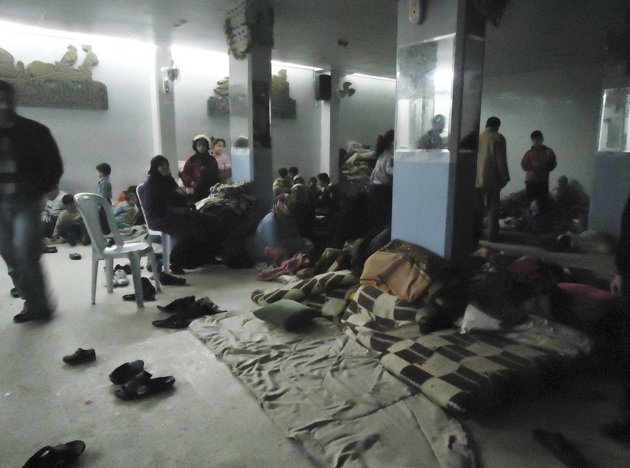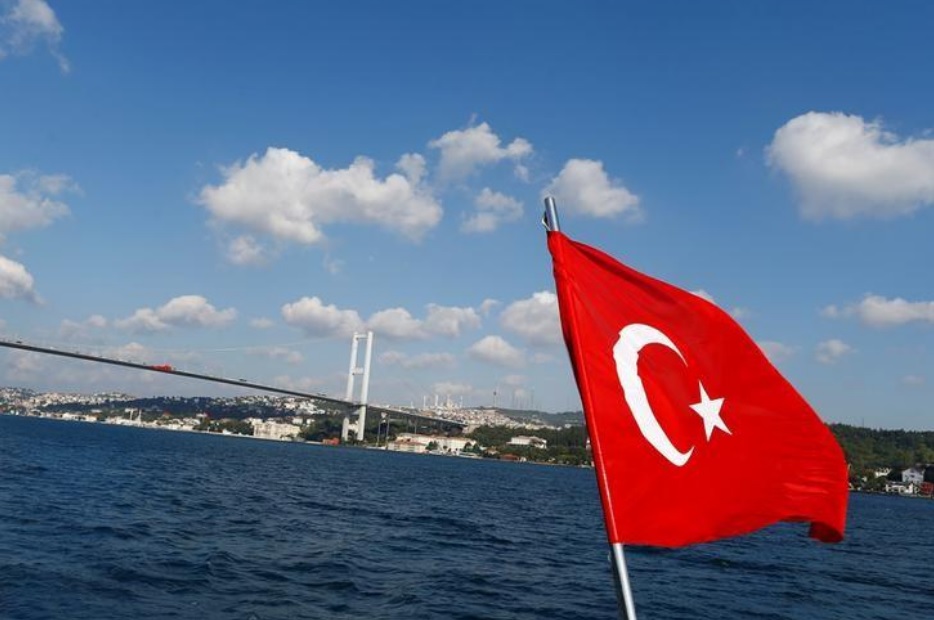
Turkey urged the United Nations on Wednesday to protect displaced Syrians inside their country but Syrian President Bashar al-Assad, battling rebels determined to overthrow him, dismissed talk of a buffer zone within Syrian territory.
Ankara fears a mass influx such as the flight of half a million Iraqi Kurds into Turkey after the 1991 Gulf War, and has floated the idea of a "safe zone" under foreign protection within Syria for civilians fleeing intensifying violence.
"We expect the United Nations to engage on the topic of protecting refugees inside Syria and if possible sheltering them in camps there," Foreign Minister Ahmet Davutoglu said.
France has supported Turkey's call for a safe zone in Syria, and pressure for action increased after the United Nations refugee agency said on Tuesday Syria's refugee exodus was accelerating. Up to 200,000 people could settle in Turkey alone if the conflict worsens, UNHCR said.
"When we talk about figures in the hundreds of thousands, this problem no longer remains a problem of an internal conflict in any one country but becomes an international, dangerous problem," said Davutoglu.
But the United States and other Western allies have shown little enthusiasm to provide the military and aerial support to police a no-fly zone which would most likely be needed to implement Turkey's proposal.
Assad, in his first television interview since a bomb attack killed four of his top security officials on18 July, brushed off the idea of international intervention.
"I believe that talk about a buffer zone is not practical, even for those countries which are playing a hostile role (against Syria)," Assad said, according to excerpts of an interview with Syria's Addounia TV broadcast on Wednesday.
Assad also took a swipe at Turkey's government which once cultivated good relations with Assad but turned against him over his violent response to the uprising in which at least 18,000 people have been killed, according to the United Nations.
"Will we go backwards because of the ignorance of some Turkish officials? [The Turkish people] have stood by us during the crisis," Assad said.
Turkey already hosts more than 80,000 refugees and UNHCR said up to 5,000 people a day have crossed the Turkish border in the last two weeks. The flow of refugees arriving in Jordan has also doubled, it said.
Buffer zones
Davutoglu was speaking shortly before going to New York to attend a UN Security Council meeting where foreign ministers are expected to discuss Ankara's proposal.
"We are studying the issue of buffer zones," said French Foreign Minister Laurent Fabius, who will chair Thursday's meeting in New York.
"It's very complicated, we can't do it without the agreement of the Turks and other countries but we want to make progress," he told France Inter radio.
On Turkey's southern border, Syrian refugee Walid Abedeen said Syrians have been asking for a buffer zone and a no-fly zone since the revolt against Assad began.
"All Syrian people are with Turkey in this move," said the 56-year-old man, who left the northwestern town of Jisr al-Shughour more than a year ago.
But an elderly woman in a purple headscarf and a long black dress, who gave her name only as Hala, said a buffer zone could not be implemented.
"(Davutoglu) is asking for it, but it won't come to anything. Bashar al-Assad won't accept because Iran supports him and Russia supports him," she said, her back to rows of white tents which make up the Boynuyogun refugee camp.
Conflict “will take time
The refugee flows to Turkey and Jordan have grown as fighting has worsened around Syria's northern city of Aleppo and across the southern province of Deraa, where anti-Assad protests first broke out, inspired by uprisings in other Arab countries.
The mainly peaceful protests were met with force by Assad's security forces, and the uprising has degenerated into a civil war with sectarian overtones. The mainly Sunni Muslim rebels are backed by regional Sunni powers. Assad, whose Alawite community is an offshoot of Shia Islam, has Iranian support.
"We are engaged in a regional and global battle and it needs time to be resolved. But I can say that we are making progress and the situation, practically, is better. But it has not been resolved," the Syrian leader said.
Assad, who has vowed to defeat insurgents he describes as Islamist terrorists, praised the army and security forces who he said “are doing a heroic job in every sense.”
Activists have accused Assad's troops and militia of slaying hundreds of people in Daraya, a town near Damascus, as the army tries to regain control of outlying areas of the capital.
Soldiers have also been fighting street battles with rebels in Aleppo, Syria's largest city, while helicopter gunships and jets have bombarded the mainly rebel-held towns nearby.
Rebels said on Wednesday they had attacked the military airport at Taftanaz, 40 kilometers (25 miles) southwest of Aleppo, to try to stem the air strikes.
"The army fired back at us with artillery inside the airport but it wasn't enough to protect them from the assault. We hit several helicopters and one of the buildings," local rebel commander Abu Moaz al-Shami said.
While Assad remained determined to defeat the rebels, Fabius reiterated French calls for Syria's fragmented opposition to unite to form a unified transitional government.
"As soon as we have an alternative government that is very broad and which, I insist, recognizes and guarantees the Alawite, Christian and other communities, then we must recognize it and that, of course, will change everything," Fabius said.
But Assad's political opponents appear as divided as ever.
Basma Kodmani, a prominent figure in the Syrian National Council which once hoped to win international recognition, resigned on Tuesday, saying the council had failed to win either credibility abroad or trust at home.




